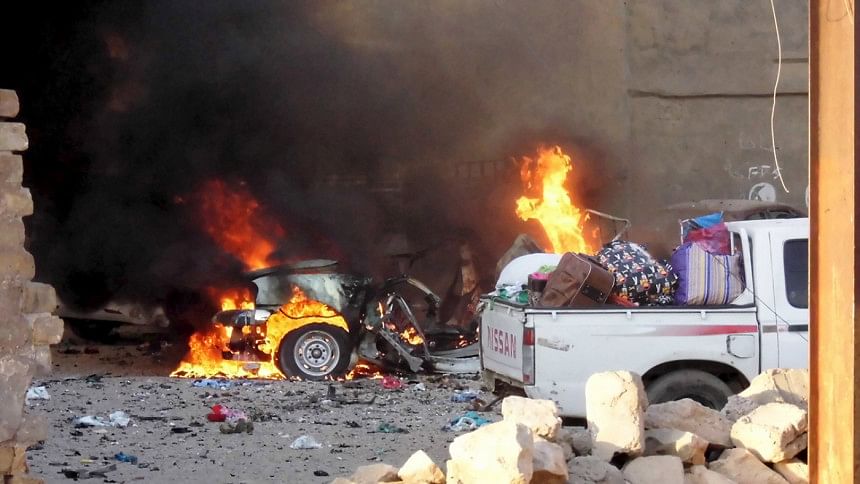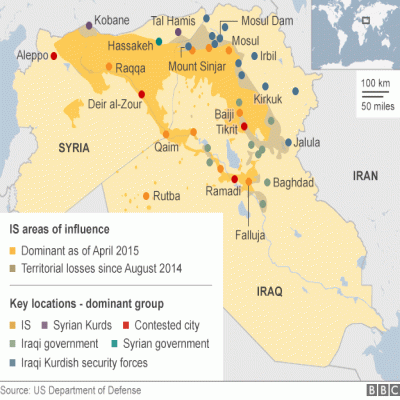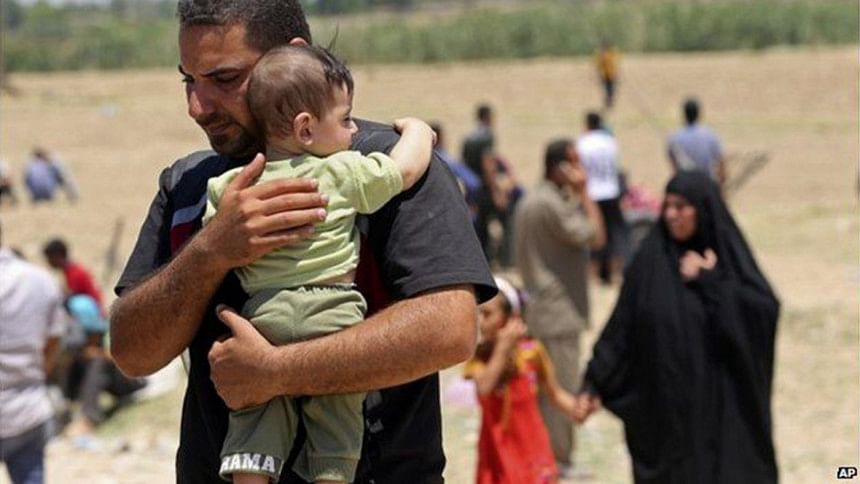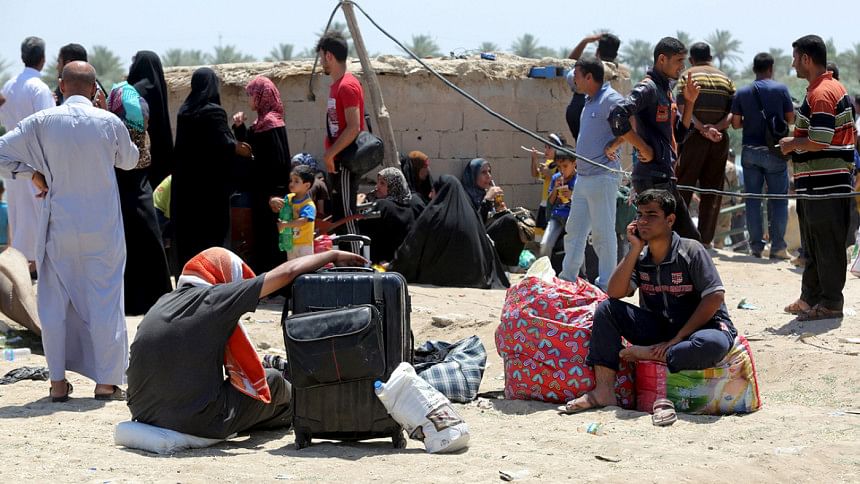Militias ‘head for IS-held Ramadi’

Iran-backed Shia militias have been ordered to recapture the Iraqi city of Ramadi seized by Islamic State (IS) militants on Sunday, reports say.
About 500 people are estimated to have died in several days of fighting in the city, which lies only 70 miles (112km) west of the capital, Baghdad.
A regional government official spoke of people fleeing Ramadi, the capital of Anbar province, "in great numbers".
But the US has said it is confident the capture of Ramadi can be reversed.
Speaking in South Korea, Secretary of State John Kerry said: "I am convinced that as the forces are redeployed and as the days flow in the weeks ahead that's going to change."
The Shia militias, known as the Popular Mobilisation (Hashid Shaabi), were key to the recapture from IS of another city, Tikrit, north of Baghdad, in April.
But their use has raised concern in the US and elsewhere that it could provoke sectarian tension in Sunni areas such as Ramadi.

The militias pulled out of Tikrit following reports of widespread violence and looting.
Shia militia commanders were quoted as saying they had orders and plans to deploy to Ramadi but did not say when.
In another move, the Iranian Defence Minister, Hossein Dehghan, has arrived in Baghdad on a visit arranged before the latest developments in Ramadi.
'Purged' city?
The police and military made a chaotic retreat from Ramadi, which has been contested for months, after days of intense fighting.
A statement purportedly from IS said its fighters had "purged the entire city". It said IS had taken the 8th Brigade army base, along with tanks and missile launchers left behind by troops.
A very well-placed source in the Anbar governor's office told the BBC Ramadi was now under the full control of IS, and all government troops had withdrawn.
An army officer told the BBC that most troops had retreated to a military base in the city of Khalidiya, east of Ramadi, despite an order from Prime Minister Abadi for them to stand firm.
US air strikes in support of Iraqi forces on Sunday appear to have failed to hinder the IS advance.
Reports said Iraqi forces fled following a series of suicide car bomb attacks on Sunday.

Four almost simultaneous explosions hit police defending the Malaab district in southern Ramadi. Later, three more suicide bombers drove explosive-laden cars into the gate of the provincial military headquarters, the Anbar Operation Command, officials said.
Anbar province covers a vast stretch of the country west from Baghdad to the Syrian border, and contains key roads that link Iraq to both Syria and Jordan. Ramadi's loss is seen as a severe setback for the government.
IS reportedly controls more than half of Anbar's territory.
The 500 killed in fighting between Friday and Sunday included policemen who had run out of ammunition and civilians caught in crossfire, the deputy head of Anbar council, Faleh al-Issawi, told the BBC.
Some 8,000 people have been displaced over the same period, according to the International Organisation for Migration.
Analysis: Jim Muir, BBC Beirut
The fall of Ramadi is a disaster for the Iraqi army and government, and especially its Prime Minister, Haider al-Abadi.
After the recapture of another provincial capital, Tikrit, at the end of March, he announced the start of a similar campaign to "liberate" Anbar province (the country's biggest) and flew to Ramadi to kick it off.
Now Ramadi has gone, and along with it the military command centre for the whole province. A few days before the final collapse on Sunday, Abbadi said he would not allow it to fall.
It did.
Now he and the largely Sunni provincial council have had to do what they didn't want - to call in the Iranian-backed Shia militias who were instrumental on the ground in recapturing Tikrit.
They will play the lead role if Ramadi is to be recaptured. Will the Americans bomb to support them, and help spread Iranian penetration and control in Iraq?

Troubled history of Anbar province
- Iraq's largest province, which is Sunni-dominated, was occupied by US forces in 2003
- Hostile to the US, fighting quickly broke out between US troops and the region's Sunni insurgents
- The worst battle came in 2004, when thousands died as US troops and coalition forces struggled to take the town of Falluja
- Fighting continued in 2005 and 2006 during which time al-Qaeda in Iraq (AQI) rose to prominence
- The US declared victory in 2007 but AQI remained, resuming attacks in 2011 when US troops withdrew
- Islamic State and other Sunni insurgents currently control much of the province

 For all latest news, follow The Daily Star's Google News channel.
For all latest news, follow The Daily Star's Google News channel. 



Comments